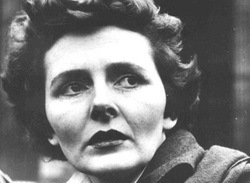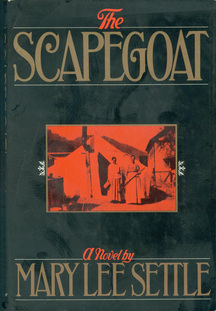 Following along the West Virginia theme from yesterday, today I am sharing my favorite WV author. Mary Lee Settle (1918-2005) is arguably the most acclaimed and yet least known West Virginia writer. Between 1954 and 2007, she published 23 books ranging from fiction to travelogue to memoir. Pearl S. Buck is probably West Virginia’s most famous author but I have always preferred the works of Settle. Though known in literary circles, Settle remains largely unknown by the general public and that is too bad. E.L. Doctorow (another of my all-time favorite authors) once remarked that even though Settle “has had her champions and her honors, she has experienced the peculiar lack of recognition sometimes suffered by strong-willed writers no matter how good or voluminous their work.”  I first heard of Mary Lee Settle during my freshman year of college. My family had recently relocated to Michigan and I was missing both West Virginia and my WV friends in a big way. One day, I picked up the latest issue of the New York Times Book Review and there on the front page was Doctorow’s glowing review of Settle’s new novel The Scapegoat (“Mother Jones Had Some Advice”). He described it as a major new work and Doctorow’s opinion was good enough for me. As soon as I could, I drove up to my favorite bookstore, the Creative Bookstore in Clarkston. They only had one copy. I bought it, took it home, and devoured it in two days. I have been a Settle fan ever since and am proud to say that I own everything she wrote (some not so easy to find). Her primary literary opus remains The Beulah Quintet: five novels chronicling succeeding generations of 3 WV families – the Laceys, Catletts, and Neills - from the American Revolution to present day. It started out as The Beulah Trilogy consisting of O Beulah Land (1956), Know Nothing (1960), and Fight Night on a Sweet Saturday (1964). Love that title! But in the 1970s Settle decided to expand the series to encompass the full gamut of West Virginia history. The trilogy became a quintet and now consists of: Prisons (1973) – chronicling the ancestors of the families during the English Civil War and how they were forced to flee England for America. O Beulah Land (1956) – finds the first generations of the families arriving in western Virginia during the Revolutionary War. Know Nothing (1960) – Three generations later, the family descendants wrestle with the American Civil War while West Virginia breaks away from the South and becomes its own state. The Scapegoat (1980) – Chronicles the brutal mining wars of 1912. The United Mine Workers under the didactic arm of Mother Jones began to organize the WV coal mines and the owners fought back. The Killing Ground (1982) – an expanded version of Fight Night on a Sweet Saturday finds the present day family members dealing with unresolved issues from the past. Besides the Quintet, Settle authored a series of novels set in Canona (a fictionalized Charleston) revolving around three couples and their changing marriages. They are The Love-Eaters (1954), The Kiss of Kin (1955), The Clam Shell (1971), and Charley Bland (1989). Some of the characters also appear in The Killing Ground. Settle’s series of memoirs should be required reading for aspiring writers. Addie (1998) chronicles her childhood and the grandmother who raised her. All the Brave Promises (1966) covers her World War II service while the posthumous Learning To Fly (2007) details her adult life and writing career. Other Major Works: The Scopes Trial (1972) remains the best retelling of that pivotal American episode. Blood Tie (1977) is her National Book Award winner about American expatriates living in Turkey (Settle exiled herself there after Richard Nixon became president). Her writing style is intense, almost stream of consciousness, as she gets inside the heads of her characters. It is the closest thing to William Faulkner that I can think of. Doctorow rightly pointed out: “Miss Settle's large ambition, her sense of scale, her capacity to take in the whole of life, from the specific feeling of a moment to the vast historic forces in social conflict, are her great gift. The sense of the individual as a member of a family and as a political being in history is hers without question.” Mary Lee Settle remains a hidden gem of American literature just waiting to be discovered. Better than anyone else, she captured the essence of the West Virginia character; the sad and often tragic history of the Mountain State; and the evolving nature of what it meant to be a woman in 20th century America. To understand all of these is to understand what it means to be an American.
0 Comments
Leave a Reply. |
Archives
August 2022
Categories |
 RSS Feed
RSS Feed